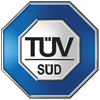The so-called “201 safeguard measures” of the United States refers to Sections 201-204 of the US Trade Act of 1974, which are now received in Sections 2251-2254 of the United States Code. The general topic of these four sections is “Active Adjustment of Industries Damaged by Imports.” This clause authorizes the President to take appropriate relief measures to prevent or remedy the damage and facilitate the necessary adjustments of the domestic industry when the quantity of imported products from other countries threatens to cause serious damage to the domestic industry.
What happened On April 17, 2017, the American photovoltaic cell manufacturer Suniva filed for bankruptcy protection in the court. The so-called bankruptcy protection means that Suniva will continue to operate and carry out restructuring, and creditors cannot demand debts. During this period, a new loan is needed to support the company’s daily operations. This loan has the highest level of repayment and is called Debtor-In-Possession financing (DIP loan). Suniva’s DIP loan is provided by a company called SQN Capital, and one of the conditions of SQN is to make Suniva file a petition with the United States International Trade Commission (USITC) in accordance with “Section 201″ to allow USITC to investigate imported photovoltaic cells and modules Whether it caused serious damage to the domestic photovoltaic industry in the United States.
Although “clause 201″ applies to all non-US products, in the case of photovoltaics, it is mainly aimed at Chinese manufacturers. According to US Customs, components worth more than US$8 billion poured into the US last year, of which US$1.5 billion came from China.
This is just superficial data. In fact, many Chinese manufacturers have opened factories in Southeast Asian countries such as Malaysia and Thailand in order to avoid “double reverse“. Therefore, Chinese photovoltaic manufacturers contribute at least 50% of the photovoltaic products imported by the United States.
And SQN instructed Suniva to submit a “clause 201″ petition precisely to blackmail Chinese photovoltaic manufacturers. The company sent an email to the China Chamber of Commerce for Import and Export of Machinery and Electronic Products on May 3. SQN mentioned in the email that it had provided Suniva with a loan of more than 51 million US dollars for the purchase of equipment. If Chinese photovoltaic manufacturers are willing to spend If the equipment is bought for $55 million, the company will withdraw the trade lawsuit.
EnergyTrend analysts emphasized: “If Clause 201 is passed, the demand for ground power stations in the United States will be greatly affected, because ground power stations have always been dominated by low-priced components, which will attract a surge of goods in the short term.” Assuming that Clause 201 is passed, ground power station operators You can only choose to default not to build a power station, or to buy extremely high-priced components to build a power station; however, the result of the latter will be insufficient to make ends meet and impact the company’s finances.
Global corporate protest
On May 23, the US International Trade Commission issued an announcement, deciding to initiate a global safeguard measures investigation (“201″ investigation) on all imported photovoltaic cells and modules in the US market based on Suniva’s application. On May 28, the World Trade Organization (WTO) issued a document showing that the United States has notified the remaining 163 WTO member states that it will consider imposing emergency “protective” tariffs on imported solar cells. After the announcement, it was met with unanimous declarations of opposition from the China Photovoltaic Industry Association and major domestic photovoltaic manufacturers.
SolarWorld, which initiated the Sino-US and Sino-European counter-actions, did not make it clear whether to support Suniva. Abigail RossHopper, chairman and chief executive of SEIA, called on the federal government to find ways to improve the competitiveness of the US solar cell and module manufacturing industry, and still oppose any restrictions on free trade.
In response to the US photovoltaic company’s application for this investigation, a spokesperson for the Department of Commerce previously pointed out that in recent years, the United States has continuously launched anti-dumping and countervailing investigations on foreign photovoltaic products, and has provided relief measures for domestic industries. In this context, if the United States again initiates a safeguard investigation, it will be an abuse of trade remedy measures and excessive protection of domestic industries, which will disrupt the normal development order of the global photovoltaic industry chain. China expresses serious concern about this.
Starting on May 10, Canadian solar companies, JA Solar, GCL, LONGi, Jinko, Trina, Yingli, Risen, Hareon and other Chinese photovoltaic companies have successively issued statements against the “201″ investigation proposed by Suniva. The China Chamber of Commerce for Import and Export of Machinery and Electronic Products also actively voiced its protest against the “201″ investigation.
The Asian Photovoltaic Industry Association pointed out in the statement that the Asian Photovoltaic Industry Association and various Asian regional industry associations firmly oppose the abuse of trade remedy measures by a few US companies. Individual solar companies intend to use trade remedy rules to obtain additional benefits, which is an expanded abuse of trade protection measures. Practice has proved that trade protection cannot save individual companies that lack market competitiveness due to their own operations, and it is not conducive to the healthy development of upstream and downstream industries.
Zhu Gongshan, chairman of the Asian Photovoltaic Industry Association, said that the photovoltaic manufacturing industry chain in Asia occupies an absolute leading position in the world. By the end of 2016, the production capacity of polysilicon, silicon wafers, cells, and modules of Asian companies accounted for 71.2%, 95.8%, and 96.8 of the world’s %, 89.6%. Globally, 96.8% of the batteries and 89.6% of the modules cannot enter the US market. “The technological upgrading and industrial development of the Asian photovoltaic industry over the past decade have made important contributions to reducing the cost of photovoltaic power generation and promoting the progress of the global photovoltaic industry. As an important force in the future of clean energy, the integration and globalization of the photovoltaic industry is a major trend. It proves that artificially setting trade barriers cannot protect the development of domestic industries. The Asian photovoltaic industry firmly supports colleagues in the global photovoltaic industry to work together for a win-win situation, and jointly promote the process of photovoltaic parity on the grid, and contribute to the global energy conservation and emission reduction cause.


















